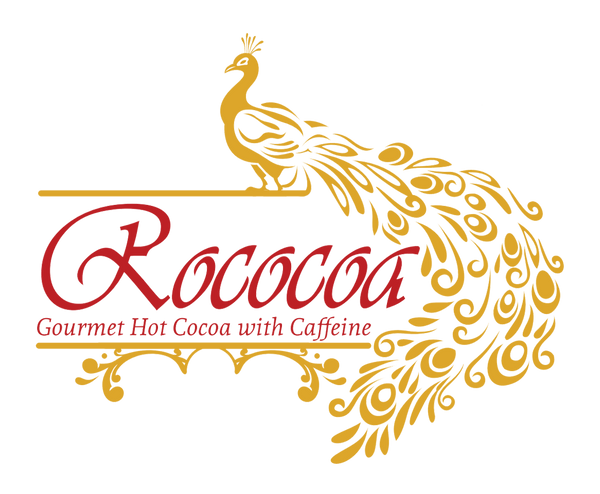
Comparing Hot Energy Drinks: Cocoa vs. Coffee
When it comes to picking a hot drink to kickstart your day, coffee often steals the spotlight. But have you ever wondered how it stacks up against its cozy contender, cocoa? Both beverages have long histories and bring something unique to the table, yet they differ in ways that might surprise you.
Understanding the Basics of Cocoa and Coffee
Cocoa and coffee each have distinct histories and methods of preparation that shape their unique characteristics. Cocoa comes from cacao beans, discovered by ancient civilizations in Central and South America. These beans are fermented, dried, roasted, and then ground into cocoa powder, ready to be transformed into rich beverages like hot cocoa. Meanwhile, coffee originates from Ethiopia and involves a similar process of harvesting, drying, and roasting. However, coffee uses beans from the coffee plant, creating a vastly different experience from cocoa.
In terms of flavor, cocoa is known for its smooth and sweet chocolaty taste, often enhanced with milk and sugar. It feels like an indulgent treat, even when it’s packed with wholesome goodness. Coffee, on the other hand, can be bold, bitter, and aromatic. Its taste varies depending on factors like roast level and brewing method. Both drinks enjoy global appreciation, becoming integral parts of various cultures. Hot cocoa often symbolizes warmth and comfort, especially during festive seasons. Coffee signifies lively energy and social interaction, celebrated in cafes around the world. These customary roles highlight how each drink serves not just as refreshment, but as a meaningful cultural staple.
Caffeine Content and Energy Boosts
One of the key differences between cocoa and coffee lies in their caffeine content. Typically, a cup of coffee contains about 95 mg of caffeine, depending on the brew strength and type. This high caffeine level provides a quick and strong burst of energy, ideal for waking up or staying alert during a busy day. On the flip side, caffeinated hot cocoa usually has around 15-20 mg of caffeine per serving. This makes it a milder alternative for those seeking a gentle energy boost rather than a jolt.
Both drinks offer unique energy benefits. The caffeine in coffee acts quickly, sharpening focus and banishing drowsiness. However, it can sometimes lead to jitters if consumed in large amounts. Caffeinated hot cocoa provides smoother energy thanks to theobromine, a compound found in cocoa. Theobromine delivers a longer-lasting, calmer boost in energy and mood without the rapid spikes or crashes often associated with caffeine alone.
The presence of theobromine in cocoa can enhance alertness and concentration while being gentler on the system. This makes hot cocoa a great choice for those who want subtle yet sustained energy throughout the day, offering a sweet alternative to the robust kick of coffee.
Health Benefits and Nutritional Differences
Cocoa and coffee both bring different nutrients to the table, affecting your health in unique ways. Let's start with cocoa. Dutch press cocoa, used in gourmet hot chocolate, is packed with antioxidants called flavonoids. These compounds are known for supporting heart health by improving blood flow and reducing blood pressure. Cocoa also contains essential minerals like magnesium, which helps regulate muscle and nerve function, and iron, crucial for blood health.
On the other hand, coffee is rich in antioxidants like chlorogenic acid, which can help lower inflammation and improve glucose metabolism. It also provides small amounts of essential nutrients such as vitamin B2 (riboflavin) and vitamin B3 (niacin).
When comparing their potential health benefits, consider that cocoa may offer a more sweetened approach to nutrient intake, while coffee delivers a more robust dose of caffeine. Cocoa's flavonoids make it an excellent choice for cardiovascular support, while coffee's antioxidants can be great for metabolic health. Both drinks can be part of a healthy lifestyle, but they cater to different health desires, making your choice between them a matter of personal preference and health goals.
Choosing the Right Drink for Your Lifestyle
Deciding between cocoa and coffee as a hot energy drink often depends on lifestyle needs and personal preferences. Here are some factors to consider:
1. Caffeine Sensitivity: If you're sensitive to caffeine, you might prefer cocoa for its lower caffeine content, offering energy without jitters.
2. Flavor Preference: Those who favor a rich, chocolatey taste might lean towards cocoa, while fans of bold, earthy flavors could choose coffee.
3. Health Goals: For those prioritizing heart health, cocoa's flavonoid-rich profile might be ideal. Coffee might suit those focused on improving metabolism.
4. Routine Simplicity: Cocoa can be an easy alternative to coffee in the morning routine or as an afternoon pick-me-up for a gentler energy boost.
Integrating your choice into daily life can be effortless. Swap one or two of your daily coffee servings for cocoa when craving variety. When it comes down to it, both drinks can fit seamlessly into your routine, adding variety and fulfilling different energy or health needs.
Conclusion
Choosing between cocoa and coffee as your preferred hot energy drink can enrich your daily habits with both taste and health benefits. While cocoa offers a comforting sweetness with the added bonus of heart-friendly flavonoids, coffee provides a quick and more intense caffeine boost along with anti-inflammatory benefits. Weigh the benefits that each beverage offers to find which aligns with your health goals and lifestyle preferences.
To explore the delightful world of cocoa further, check out Rococoa Gourmet, where you can discover premium caffeinated hot cocoa designed to satisfy your taste and complement your wellness journey. Our carefully crafted selections provide the perfect blend of flavor and health benefits, making them an excellent option for anyone looking to enhance their daily routine with a delicious coffee alternative.
